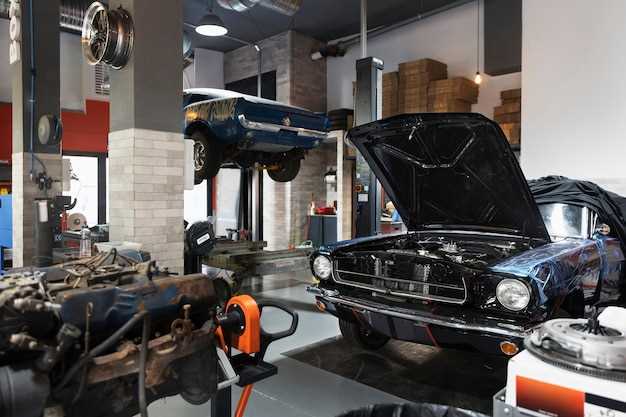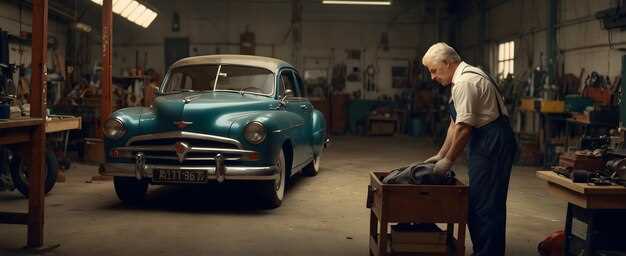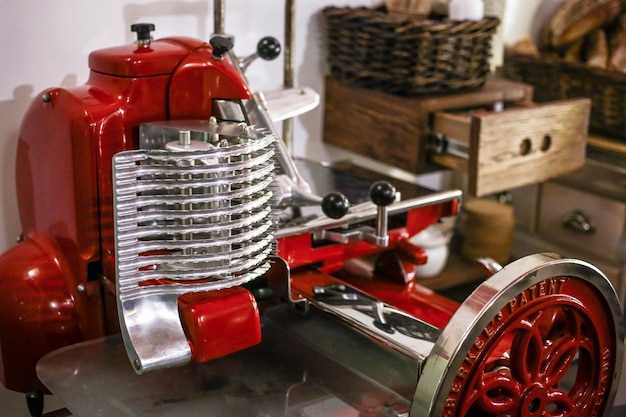
When it comes to restoring a vintage vehicle, the selection of the right restoration shop is crucial. A classic car, often considered a piece of art, requires the expertise of a specialist who understands the nuances of these automotive treasures. From bodywork to mechanical enhancements, each aspect of restoration demands a keen eye for detail and a deep appreciation for the history of the car.
The restoration process can be complex and labor-intensive. Therefore, it is essential to choose a shop that not only specializes in vintage cars but also has a proven track record of successful projects. Look for a restoration shop that can provide references from satisfied customers and showcase examples of their finished work. This firsthand evidence can help ensure that your restoration investment yields the desired results.
Additionally, having clear communication with the restoration specialist is vital. Discussing your vision for the project and understanding the shop’s approach to restoration will build trust and set the foundation for a successful partnership. Every vintage car has its unique story, and finding a shop that aligns with your goals will make the journey as rewarding as the final product.
Evaluating Restoration Shop Expertise for Vintage Models

When selecting a restoration shop for your vintage car, it is crucial to assess the expertise of the specialists working there. Vintage models often require specific knowledge and skills that differ significantly from modern vehicles. Therefore, evaluating the shop’s experience with your particular make and model is essential.
Begin by investigating the shop’s history of working on vintage vehicles. Inquire about their familiarity with the specific brand and model you own. A restoration shop with extensive experience in dealing with classic cars will likely have a team of specialists who understand the nuances and quirks of older vehicles.
Additionally, reviewing the shop’s portfolio can provide insights into their capabilities. Look for completed projects that showcase a high level of craftsmanship and attention to detail. A shop that openly displays their previous vintage restorations is often confident in their work and can give you a sense of their aesthetic and technical standards.
Furthermore, consider reaching out to previous clients for testimonials. Genuine feedback from vintage car owners can shed light on a restoration shop’s reliability, quality of work, and ability to meet deadlines. A reputable shop will be more than willing to share references and stories about their past projects.
Ultimately, selecting a shop that not only specializes in vintage models but also demonstrates a proven track record of excellence will ensure your classic car receives the meticulous attention it deserves.
Checking Customer Reviews and Testimonials for Credibility

When selecting the right classic car restoration shop, it’s essential to assess customer reviews and testimonials. Reliable feedback from previous clients can serve as a powerful indicator of the shop’s credibility and expertise. As vintage cars require specialized care, understanding the experiences of others can help you find the right specialist for your needs.
Begin by looking for reviews on various platforms, including social media, automotive forums, and dedicated review sites. Pay attention to the overall tone of the feedback, noting any recurring themes. Positive comments regarding craftsmanship, attention to detail, and customer service can enhance a shop’s credibility. Conversely, consistent complaints about missed deadlines or subpar work might raise red flags.
Testimonials on the shop’s website often provide insight into their strengths. While these are typically curated, they can still offer useful information. Look for detailed accounts of restoration projects similar to your own vintage vehicle; this shows the shop’s relevant experience. Inquire about past projects, as a specialist with a solid portfolio is more likely to deliver satisfactory results.
It’s also beneficial to communicate directly with former customers if possible. Honest discussions about their experiences can reveal a lot about the shop’s reliability and expertise. Ask specific questions about the restoration process, timelines, and whether the shop offered any guarantees on their work.
Finally, consider the shop’s overall reputation in the classic car community. Shops that participate in vintage car shows or have memberships in automotive associations usually uphold higher standards. This involvement demonstrates a commitment to their craft, enhancing their credibility in the eyes of potential customers.
Understanding Cost Estimates and Project Timelines
When considering a classic car restoration, obtaining accurate cost estimates and realistic project timelines is crucial. A reputable shop will begin with a thorough assessment of your vehicle, evaluating its current condition and identifying necessary repairs and enhancements. This preliminary evaluation allows specialists to provide a detailed breakdown of costs associated with parts, labor, and any potential unforeseen issues that may arise during the restoration process.
Cost estimates should encompass not just the visible restoration work but also hidden aspects such as rust treatment, engine rebuilds, and electrical systems upgrades. It’s essential to communicate clearly with the restoration shop about your budget and expectations to ensure that all potential expenses are addressed upfront.
In addition to costs, understanding the project timeline is equally important. A specialist will typically provide a time frame based on the scope of work and their current workload. This timeline can fluctuate based on various factors, such as parts availability or the complexity of the restoration. It’s advisable to maintain open lines of communication with the shop throughout the project to stay informed about progress and any changes in schedule.
Ultimately, a successful restoration hinges on a well-structured plan that balances quality outcomes with budget and time constraints. A trusted shop will prioritize transparency in both cost estimates and project timelines, helping you navigate the restoration process with confidence.
